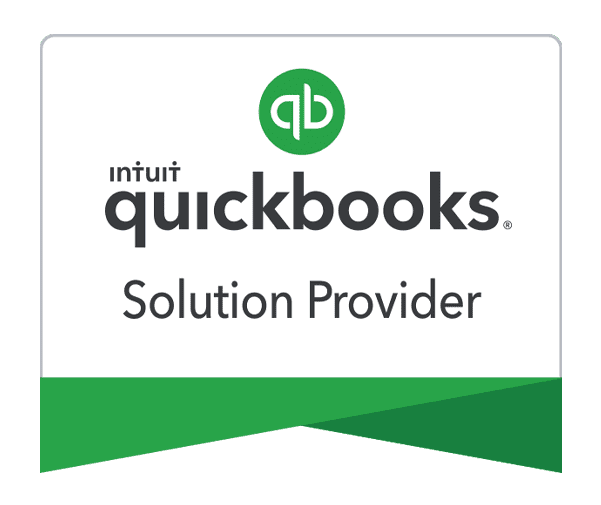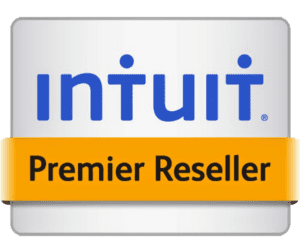
Paygration, Inc.
QuickBooks Enterprise has been a go-to solution for many businesses looking to manage their finances effectively. However, with the rapid advancements in cloud technology and the increasing need for accessibility and flexibility, many businesses are considering a move to QuickBooks Online.
Let’s explore when you should move from QuickBooks Enterprise to QuickBooks Online, detailing the benefits, key considerations, and steps to ensure a smooth transition.
Understanding QuickBooks Enterprise and QuickBooks Online
Before diving into the reasons for making the switch, it’s essential to understand what each platform offers.
QuickBooks Enterprise
- Designed for larger businesses with complex needs
- Offers robust inventory management, advanced reporting, and extensive user permissions
- Typically installed on local servers or desktops
- Requires ongoing IT maintenance and support
QuickBooks Online
- Cloud-based solution accessible from any internet-connected device
- Suitable for small to medium-sized businesses and growing enterprises
- Offers seamless updates, integrations, and real-time collaboration
- Requires no local installation or maintenance
Benefits of Moving to QuickBooks Online
Accessibility and Flexibility
QuickBooks Online allows you to access your financial data from anywhere, anytime, using any device with an internet connection. This level of accessibility is particularly beneficial for businesses with remote teams or multiple locations. It ensures that you can manage your business on the go without being tied to a specific location.
Real-Time Collaboration
Multiple users can work on QuickBooks Online simultaneously without any conflicts. This real-time collaboration ensures that all team members are on the same page, improving efficiency and decision-making. Teams can collaborate effortlessly, making it easier to share insights and updates instantaneously.
Reduced IT Costs and Maintenance
Being a cloud-based solution, QuickBooks Online eliminates the need for local installations, server maintenance, and IT support. This reduction in IT overhead can result in significant cost savings. Businesses no longer need to worry about hardware failures, software updates, or compatibility issues, allowing them to focus more on core operations.
Automatic Updates and Enhancements
QuickBooks Online automatically updates to the latest version, ensuring you always have access to the newest features and security improvements. This automatic updating process eliminates downtime and the need for manual installations, keeping your system running smoothly and securely.
Scalability
QuickBooks Online scales easily with your business. Whether you are a small business expecting growth or a larger enterprise looking to expand, QuickBooks Online can accommodate increasing data, users, and transactions. Its flexible pricing plans and features allow you to upgrade or customize as your business needs evolve.
Learn the benefits of QuickBooks Online and cloud accounting.
Key Considerations Before Making the Move
While the benefits are compelling, there are several factors to consider before moving from QuickBooks Enterprise to QuickBooks Online:
- Feature Comparison: Ensure that QuickBooks Online offers all the features you need. While it covers most business requirements, some advanced features in QuickBooks Enterprise might not have direct counterparts in QuickBooks Online.
- Data Migration: Moving data from QuickBooks Enterprise to QuickBooks Online can be complex. Consider working with an expert like a QuickBooks reseller o ensure a smooth transition without data loss or discrepancies. It’s crucial to plan and execute the migration process carefully to maintain data integrity.
- User Training: Transitioning to a new system can require training for your team. Make sure your staff is prepared to use QuickBooks Online effectively. Providing adequate training resources and support can minimize disruptions and enhance productivity during the switch.
- Cost Analysis: Compare the total cost of ownership between QuickBooks Enterprise and QuickBooks Online. While you might save on IT costs, it’s important to evaluate subscription fees and any additional costs associated with third-party integrations or customizations.
Discover the 50 reasons why QuickBooks Online Advanced is a powerful option.
Steps to Transition from QuickBooks Enterprise to QuickBooks Online
If you decide that moving to QuickBooks Online is the right choice for your business, follow these steps to ensure a successful transition:
- Assess Your Needs: Determine your business requirements and ensure that QuickBooks Online can meet them. Identify the specific features and capabilities you need for daily operations and future growth.
- Choose the Right Plan: Select the appropriate QuickBooks Online plan that aligns with your business size and needs. Consider factors like the number of users, inventory management, and reporting requirements when choosing a plan. Head to our guide on selecting the best version of QuickBooks Online.
- Backup Your Data: Before making any changes, back up all your data from QuickBooks Enterprise. This ensures you have a safety net in case anything goes wrong during the migration process.
- Migrate Your Data: Use QuickBooks’ migration tools or seek help from a professional to move your data accurately. This process involves exporting data from QuickBooks Enterprise and importing it into QuickBooks Online, ensuring that all financial records, customer information, and historical data are correctly transferred.
- Set Up QuickBooks Online: Configure your QuickBooks Online account according to your business needs. Set up users, permissions, and preferences to mirror your current setup or improve upon it based on the new platform’s capabilities. An expert like Paygration can do all the setup needed so you won’t have to do it yourself.
- Test and Verify: After migration, thoroughly test the new system to ensure all data is accurate and functionality meets your needs. Run reports, check balances, and ensure that all transactions have been migrated correctly.
- Train Your Team: Provide training and resources to help your team get accustomed to QuickBooks Online. This includes familiarizing them with the interface, features, and any new workflows that might be required.
- Go Live: Once you’re confident that everything is set up correctly, make the switch to QuickBooks Online as your primary accounting solution. Monitor the initial period closely to address any issues that may arise and ensure a smooth transition.
Paygration Can Help With The Transition
Transitioning from QuickBooks Enterprise to QuickBooks Online can be a daunting task, but Paygration simplifies the process with expert guidance and support. Our team of QuickBooks specialists understands the intricacies involved in migrating data, setting up new accounts, and training your staff. We provide personalized assistance every step of the way, ensuring a smooth transition that minimizes disruptions to your business operations.
Conclusion
Moving from QuickBooks Enterprise to QuickBooks Online can offer numerous benefits, including greater accessibility, real-time collaboration, reduced IT costs, and automatic updates. However, it’s important to carefully assess your business needs, ensure a smooth data migration, and provide adequate training for your team. With the right approach, the transition can be a positive step towards enhanced efficiency and growth.
For businesses looking to explore the transition in detail, Paygration offers a free demo and consultation. If you’re ready to purchase QuickBooks Online, we will provide you with exclusive discounts and ongoing support for as long as your account is active. Get started by calling 866-949-7267 today!
















